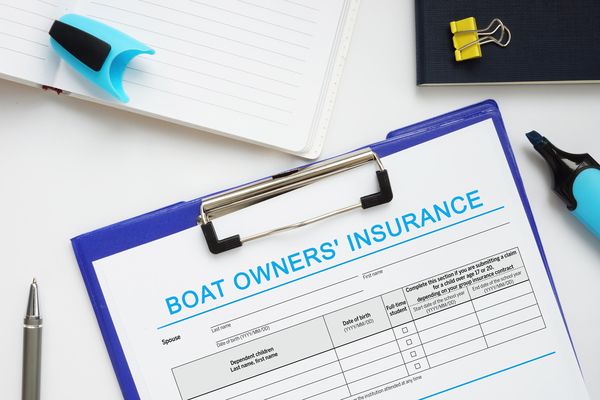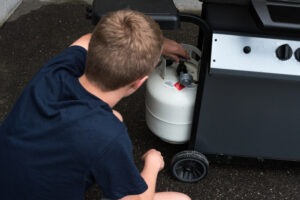
With thousands of miles of coastline to enjoy, it’s no wonder that Floridians love boating. There’s nothing more relaxing than getting out on the water, kicking back with friends, and reeling in the day’s big catch.
Unfortunately, Florida boating accidents put a damper on this popular recreational activity. In 2019, Florida led the nation in the number of registered vessels: 935,742 in total. The Sunshine State also leads the nation in boating accidents. The state had 679 boating accidents in 2019; more than double that of California, which comes in a distant second.
Given the prevalence of boating accidents, GED Lawyers offers this quick guide to understanding boating laws in Florida and the procedures to take in case you’re the victim of someone else’s negligence.
Overview of Boating Laws in Florida
Chapters 327 and 328 of the Florida Statutes contain a full description of boating laws in Florida. Here are some highlights you need to know:
- There is no minimum age for operating a boat, but operators under the age of 25 must take a boater’s safety course.
- Vehicles must be registered and numbered within 30 days of purchase. Operators need to obtain a Florida registration decal and display it on the port side of the boat, either before or after the registration number.
- The vehicle operator must report any accident in which there is personal injury or property damage in excess of $2,000 by giving notice to the Florida Fish and Wildlife Conservation Commission, the county sheriff, or the police chief of the municipality where the incident took place. It’s unlawful to leave the scene of an accident without properly reporting it.
- Operating a boat with reckless disregard for the safety of others is a first-degree misdemeanor.
- Boat operators must obey posted speed limits.
- It’s illegal to operate a boat under the influence of drugs or alcohol. Authorities can stop you and ask you to take a sobriety test if they suspect you’re boating under the influence.

What to Do If You’re Involved in a Boating Accident
As already mentioned, it’s illegal to leave the scene of a boating accident without reporting it to the proper authorities, so the first thing you need to do is stay put. Florida state law also mandates that you provide assistance to others at the scene and exchange written information with the other operator.
Federal law says you must report a boating accident within 48 hours if the vessel or its equipment causes anyone’s death within 24 hours, there is an injury requiring first aid, or a person’s disappearance is likely due to injury or death. Likewise, federal law requires you to report within 10 days if the accident causes more than $2,000 worth of property damage or a vessel is lost at sea.
Leading causes of boat accidents include boating in bad weather conditions and speeding. As with an automobile accident, it’s a smart move to document evidence. Take photos of property damage and injuries sustained at the scene, if possible. If there are witnesses, get their names and contact information.
How Is Liability Determined?
Establishing who is liable in a boating accident boils down to determining negligence. A boat operator may be deemed negligent if any of the following apply:
- The operator disregards posted speed limits or fails to slow down in dangerous conditions.
- The boat captain fails to provide proper safety equipment.
- The boat captain operates the watercraft under the influence of drugs or alcohol.
- The vessel is improperly maintained.
- The operator takes out the vessel in poor weather.
In other words, if the captain doesn’t behave as a reasonable boat operator would, they may be liable in the event of an accident.
Recreational boat operators with paying passengers may also be liable, even if they ask passengers to sign liability waivers. Such waivers are only enforceable if the waived rights are clearly defined and an average person can readily understand the language.
Liable to who is another relevant question when it comes to Florida boating accidents. The incident could easily fall under general maritime law instead of Florida negligence law, since general maritime law applies to any navigable body of water that could lead to the ocean, including the Intracoastal Waterway. It’s important to note that these two governing bodies have different statutes of limitations. General maritime law follows the Uniform Statute, which is three years. Florida negligence law has a two-year statute of limitations.

When and How to File a Claim
You already know that Florida law requires you to notify the proper authorities whenever there are injuries or property damage at the scene of a boating accident. In addition to helping victims, first responders will investigate the incident.
When law enforcement has completed its investigation, it typically files a police report. Authorities may also make arrests at the scene. In the absence of a police report, the boat operator must file an official report.
Your behavior at the scene and immediately after the accident is critical to the outcome of any personal injury determination.
- If you suffer an injury, seek medical help. Medical care provides verification of the damages for which you are seeking compensation.
- Make sure you have the name, address, and boating registration number of the other operator, if applicable.
- Collect all evidence at the scene. You may think you’ll remember specifics, but accidents impair clear judgment and people tend to forget relevant details quickly. Granted; nothing beats photographic evidence. However, if you have a notebook, jotting down facts to remember later is also a great strategy.
Although you must take immediate action to document your damages and establish the other party’s negligence, Florida law gives you two years from the date of the accident to file a boat accident claim.

Have You Been in a Florida Boating Accident?
Sometimes liability is an open-and-shut case. But why take chances when your bottom line is at stake? GED Lawyers can help you navigate the complex world of filing a boating accident claim and determine whether you need a personal injury lawyer to represent your case in court. Our team of committed, compassionate attorneys is just a phone call away. Dial 561-995-1966 or toll-free at 844-443-3529 to schedule your free case review today. You can also contact us online.



